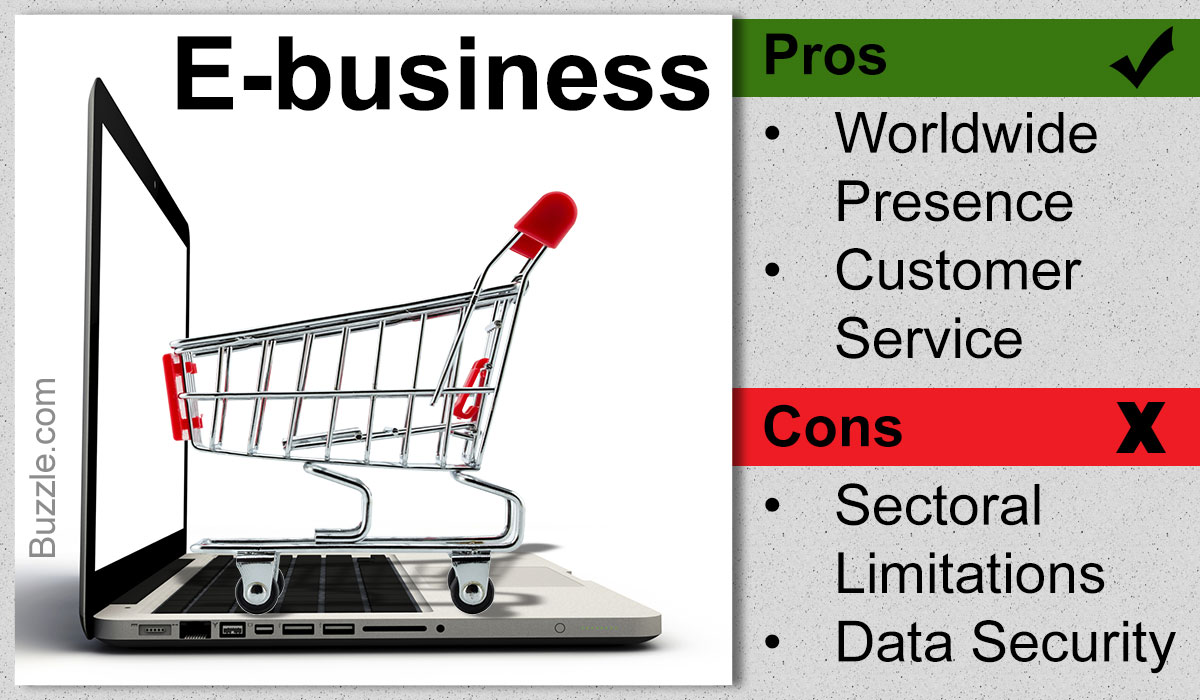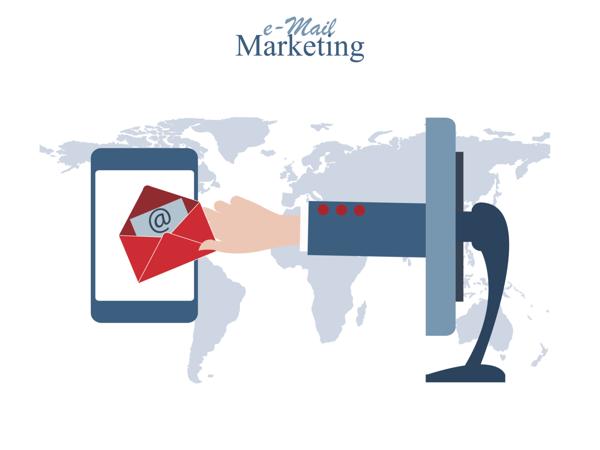
The advent of the Internet has lensed human perception no end. E-business, sure, is beneficial; however, its limitations need acknowledgement, as well. This write-up weighs the pros and cons of e-business for you.
E-business is a monolithic term encompassing the various business processes that aim to integrate the vendors or traders with the consumers and suppliers using the Internet. The entire process of setting up a website, helping the prospective customers navigate through the website, showing them the available products, offering discounts and vouchers and doing everything possible to woo the prospective clients and converting them into customers, comes under the purview of e-business.
E-commerce, on the other hand, is a subset of e-business and refers to online transactions that can be accounted for in monetary terms. For instance, accepting credit card payment for products sold to consumers or making payments for shopping online are examples of e-commerce. In other words, e-commerce refers to the last stage of e-business, which involves collecting payments for the goods sold by the business firm.
Advantages
Worldwide Presence
This is the biggest advantage of conducting business online. A firm engaging in e-business can have a nationwide or a worldwide presence. IBM was one of the first companies to use the term e-business to refer to servicing customers and collaborating with business partners from all over the world. Dell Inc., too, had a flourishing business selling PCs throughout the U.S., only via telephone and the Internet till the year 2007.
Amazon.com is another success story that helps people buy internationally from third parties. Hence, worldwide presence is ensured, if companies rethink their business with regard to the Internet.
Cost-effective Marketing and Promotions
Using the web to market products guarantees worldwide reach at a nominal price. Advertising techniques, like pay per click advertising, ensure that the advertiser only pays for the advertisements that are actually viewed.
Affiliate marketing — where customers are directed to a business portal because of the efforts of the affiliate, who in turn receive a compensation for their efforts meeting with success — has emerged on account of e-business. Affiliate marketing has helped both the business and the affiliates. Firms have managed to use cost-effective online advertising strategies to their advantage.
Developing a Competitive Strategy
Firms need to have a competitive strategy in order to ensure a competitive advantage. Without an effective strategy, they will find it impossible to maintain the advantage and earn profits. The strategy that the firms can pursue, can be a cost strategy or a differentiation strategy.
For instance, till the year 2007, Dell Inc. was selling computers only via the Internet and the phone. It adopted a differentiation strategy by selling its computers online and customizing its laptops to suit the requirements of the clients. Thus, e-business resulted in Dell Inc. managing to capture a chunky segment of the market using the differentiation strategy.
Better Customer Service
E-business has resulted in improved customer service. Many a time, on visiting a website, the customer is greeted by a pop-up chat window. Readily available customer service may help in encouraging the customer to know more about the product or service. Moreover, payments can be made online, and products can be shipped to the customer without the customer having to leave the house.
Curtailing of Transaction Cost
The nature of online business is such that, the costs incurred for every transaction to go through smooth and sound, there is no acting middleman. Websites are sufficiently loaded with directions to facilitate stress-free transactions. Simple and succinct instructional tabs, generally, save the potential buyer from predicaments of any sort.
The mode of payment is predetermined, promising security to the customer. Thus, online payments are a no-ho-hum affair. All that you are left with, as the proprietor of your online business, is to download the requirement order and ship it. This demands effort, too; however, the toil is far less than a tangible business profile.
Overhead Costs Are Reduced
An E-business, essentially, is independent of costs that are incurred due to business having a physical entity. Utility bills and other expenses are manageable. You also cut back on costs incurred for hiring personnel and retaining them with competitive incentives topped with abundant facilities. Running an e-business is highly convenient as the proprietor does not require to rent another site to execute the business.
Disadvantages
Sectoral Limitations
The main disadvantage of e-business is the lack of growth in some sectors on account of product or sector limitations. The food sector has not benefited in terms of growth of sales and consequent revenue generation because of a number of practical reasons, like food products being perishable items. Consumers do not look for food products on the Internet, since they prefer going to the supermarket to buy the necessary items as and when the need arises.
Costly E-business Solutions for Optimization
Substantial resources are required for redefining product lines in order to sell online. Upgrading computer systems, training personnel, and updating websites requires substantial resources. Moreover, Electronic Data Management (EDM) and Enterprise Resource Planning (ERP), necessary for ensuring optimal internal business processes, may be looked upon, by some firms, as one of its disadvantages.
Question of Safety
With the world beguiled by the Internet, it’s a fat chance that you are not one among the aficionados. The Internet is second to none, not to oxygen even, to say the least. Well, one breathes Internet. Shoppers act live wires when it comes to online pick and pay. However, with far and many pacing about, there are a few, who twitch at the mention of online payment. Instances of dupery have no intentions of nailing up anytime soon, and pseudo sites merrily mushroom. All the customer can do, is remain in a state of doubt.
Data Security
To carry out online transactions, the websites ask for your email address and other contact details. Customers brake at the mention of providing personal details, lest defiling of some nature occurs. Besides, certain sites have a complicated operational structure. Thanks to them, hackers have a job! They fiddle with accounts, meddle with important files, and corrupt data. This, certainly, cannot be termed ethical hacking! Viruses metastasize every second damaging the database, sometimes awarding disastrous repercussions, too.
Site Integrity
“We respect privacy. The information provided by the customer will be protected. We refute dissemination practices as much as you do.” Does this statement not tintinnabulate in the ears. Well, we have come across these paraplegic oaths several times. Are they true to their word? May be … may be not. Some sites are known to trade their customers’ details for monetary benefits. The question remains: Can we trust them?
System Upgradation
Once a system is developed, the responsibility of ad hoc upgradation at intervals follows suit. If this does not happen, the site turnover would be poor. To improve site performance and tow in a good share of online customers, keeping up with the advancements is pivotal. Though, some sites may find doing this an unnecessary feature.
Momentary Intangibility
No matter what e-business may try, their chances of selling products — like furniture and appliances — successfully, are bleak. Unless a buyer has the liberty to splurge the kitty, the ‘E’ sector fights a battle, it absolutely isn’t a part of. For instance, if you are planning to buy a sofa set, you would want to sit on it, get the feel of the upholstery used, the finish, and what have you! An online furniture bay, by no means, can consider a proposition like this one. It is better to accept that, there, indeed, are certain things not meant to be bought online due to the spatial creep; for the rest there is e-transaction!
E-business does have its set of pros and cons. However, eventually, every business — be it partially or completely — has to change its modus operandi, and adopt e-business practices in order to ensure survival and success.


